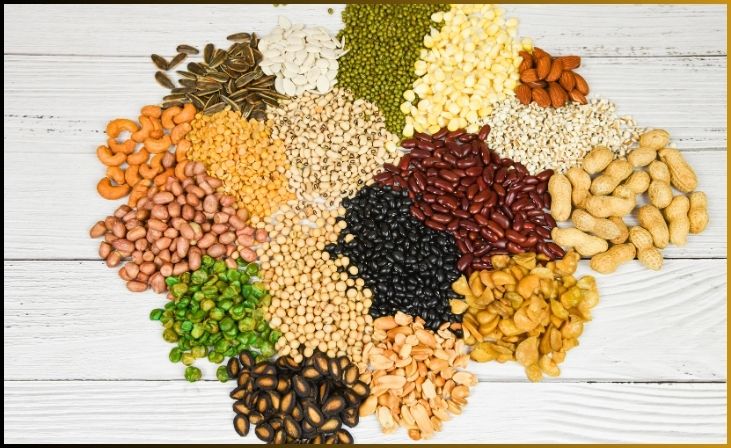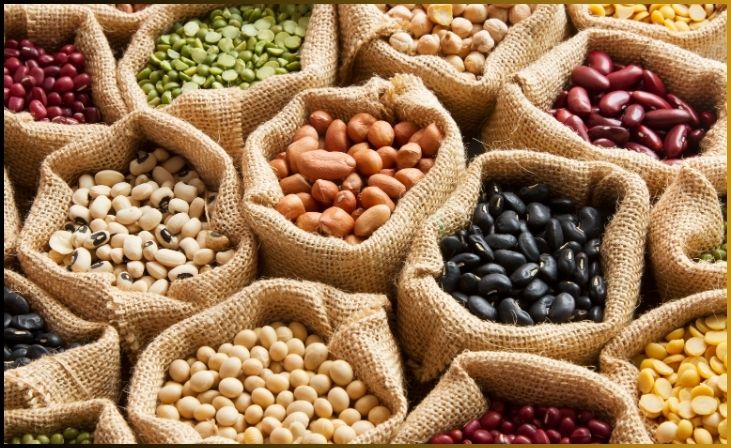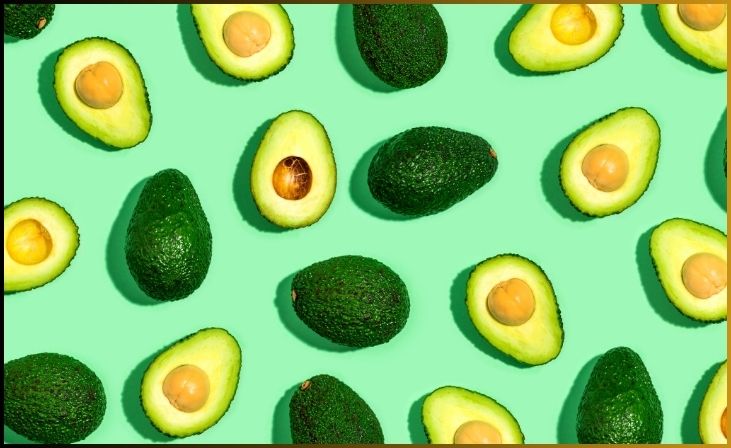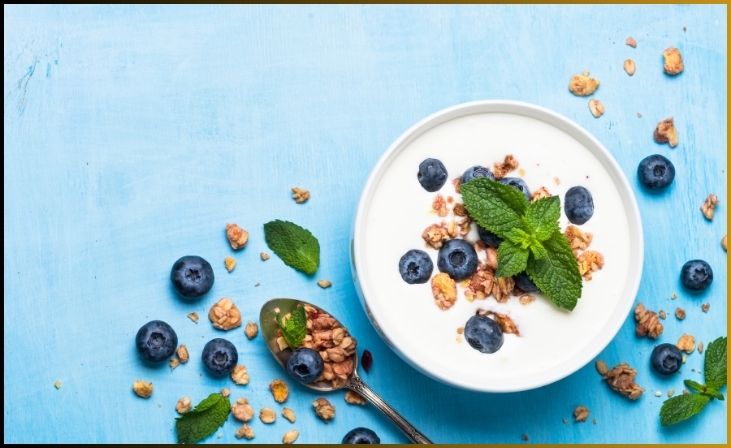Managing blood sugar levels is a critical aspect of maintaining good health, especially in a world where diabetes and related health issues are on the rise. The food we consume plays a pivotal role in this endeavor, offering us an opportunity to stabilize our blood sugar levels and reduce the risk of developing diabetes. In our blog, “Sweet Control: 10 Foods for Stable Blood Sugar Levels,” we embark on a journey to explore a selection of foods that can help you achieve just that.
This blog delves into the significance of maintaining steady blood sugar levels, how diet impacts this crucial aspect of our well-being, and most importantly, the ten foods that can be your allies in the fight against blood sugar spikes. From leafy greens to berries, each food item offers not only the promise of better blood sugar control but also a palette of delicious flavors to elevate your meals. Join us as we uncover the sweet secret to balanced blood sugar and overall health.
The Importance of Blood Sugar Control
The Importance of Blood Sugar Control:
- Health Maintenance: Stable blood sugar levels are essential for maintaining overall health. When blood sugar is within a healthy range, it ensures that the body’s cells and organs receive a consistent energy supply, supporting their proper function.
- Diabetes Prevention: Blood sugar control is a key factor in preventing the onset of type 2 diabetes. Elevated blood sugar levels over an extended period can lead to insulin resistance and ultimately diabetes. By keeping blood sugar in check, individuals can reduce their risk of this chronic condition.
- Cardiovascular Health: High blood sugar is closely linked to an increased risk of cardiovascular issues, including heart disease and stroke. Maintaining healthy blood sugar levels is a vital aspect of cardiovascular health.
- Kidney Protection: Prolonged high blood sugar levels can damage the kidneys over time, potentially leading to kidney disease or failure. Stable blood sugar levels reduce this risk and help protect kidney function.
- Nerve Health: Elevated blood sugar can damage nerves, leading to conditions like diabetic neuropathy, which causes numbness and pain in the extremities. Blood sugar control is crucial in preventing nerve damage.
- Weight Management: Stable blood sugar levels can support weight management efforts. Sudden spikes and crashes in blood sugar can lead to overeating and weight gain.
The Role of Diet in Blood Sugar Management
Diet plays a central role in managing blood sugar levels. By making smart food choices, you can regulate glucose levels, reduce insulin resistance, and promote overall health. Here are ten foods that can help you achieve this goal:
1. Leafy Green Vegetables

Leafy green vegetables are nutritional powerhouses and are exceptionally beneficial for blood sugar control. Varieties such as spinach, kale, collard greens, and Swiss chard are low in carbohydrates while being rich in fiber, vitamins, and antioxidants. Their low carbohydrate content ensures that they have a minimal impact on blood sugar levels, preventing sharp spikes.
The fiber in leafy greens is a crucial element in blood sugar regulation. It slows down the digestion and absorption of carbohydrates, helping to maintain steady glucose levels. Additionally, leafy greens contain vital nutrients like magnesium, which has been linked to improved insulin sensitivity, reducing the body’s resistance to insulin.
For More- Top 10 Foods You Should Eat as You Get Older
2. Whole Grains

Whole grains are a nutritional treasure when it comes to managing blood sugar levels. These grains, such as oats, quinoa, brown rice, and whole wheat, retain all parts of the grain kernel, including the bran, germ, and endosperm. This preservation of the whole grain provides a substantial amount of fiber, vitamins, and minerals that are integral to blood sugar control.
The fiber content in whole grains plays a pivotal role in slowing down the digestion and absorption of carbohydrates, preventing rapid spikes in blood sugar levels after meals. The slow and steady release of glucose into the bloodstream helps maintain stable energy levels throughout the day. Furthermore, the fiber in whole grains promotes a feeling of fullness, reducing the likelihood of overeating and aiding in weight management, another important factor in blood sugar control.
3. Berries

Berries, including blueberries, strawberries, raspberries, and blackberries, are not only delicious but also valuable allies in the quest for blood sugar control. These vibrant fruits are low in carbohydrates and packed with fiber, making them an ideal choice for those looking to stabilize their blood sugar levels.
The fiber content in berries is particularly noteworthy. Fiber slows down the absorption of sugar in the bloodstream, preventing rapid spikes in blood glucose levels. This gradual release of glucose provides sustained energy and helps avoid the energy crashes that can follow the consumption of high-sugar foods.
4. Legumes

Legumes, a category of plants that includes beans, lentils, and peas, are a valuable addition to a diet aimed at controlling blood sugar levels. These nutrient-dense foods are rich in fiber, protein, vitamins, and minerals, making them a well-rounded and healthful choice.
The high fiber content in legumes, both soluble and insoluble, plays a significant role in blood sugar regulation. Soluble fiber, in particular, helps slow down the absorption of sugar in the bloodstream, preventing sudden spikes and crashes. This gradual release of glucose supports stable energy levels and reduces the risk of hyperglycemia.
Legumes also contain complex carbohydrates that are digested more slowly than simple carbohydrates, further contributing to blood sugar stability. Moreover, the protein content in legumes can help control appetite and promote fullness, preventing overeating and supporting weight management—another crucial aspect of blood sugar control.
5. Nuts

Nuts are not only a tasty and convenient snack but also a valuable addition to a diet aimed at maintaining stable blood sugar levels. Varieties like almonds, walnuts, and pistachios are packed with nutrients and offer several benefits for those concerned about their blood sugar.
One of the standout features of nuts is their high fiber content. Fiber, specifically the soluble type found in nuts, helps slow down the absorption of sugar in the bloodstream. This slow and steady release of glucose supports stable energy levels and prevents rapid blood sugar spikes, a crucial factor in diabetes management.
Nuts are also abundant in healthy fats, including monounsaturated and polyunsaturated fats, which have been associated with improved insulin sensitivity. These fats help reduce insulin resistance and inflammation, contributing to better blood sugar control. Additionally, the protein content in nuts can promote a feeling of fullness, reducing the likelihood of overeating and supporting weight management, a key component of blood sugar control.
6. Avocado

Avocado is a unique and highly nutritious fruit that stands out as an excellent choice for maintaining stable blood sugar levels. It is rich in healthy monounsaturated fats, particularly oleic acid, which plays a key role in improving insulin sensitivity. These healthy fats are associated with reducing insulin resistance, making avocado a valuable addition to a diabetes-friendly diet.
The low carbohydrate content of avocados is another advantage when it comes to blood sugar control. With minimal impact on glucose levels, avocados offer a satisfying and delicious way to incorporate healthy fats into your meals.
Moreover, avocados are a good source of dietary fiber, which is essential for blood sugar regulation. Fiber slows down the digestion and absorption of carbohydrates, helping to prevent rapid spikes in blood sugar levels. This gradual release of glucose supports stable energy levels and overall well-being.
7. Cinnamon

Cinnamon is not only a delightful spice that enhances the flavor of various dishes but also a potent tool for blood sugar control. It contains compounds, including cinnamaldehyde, that have been linked to improved insulin sensitivity, reduced insulin resistance, and more effective blood sugar regulation.
Cinnamon works by mimicking the action of insulin in the body, helping cells absorb glucose from the bloodstream. This, in turn, reduces the body’s need for insulin to manage blood sugar levels. By enhancing insulin function, cinnamon aids in preventing sharp spikes in blood sugar after meals, a common concern for those with diabetes or at risk of the condition.
Adding cinnamon to your diet is easy and enjoyable. You can sprinkle it on oatmeal, yogurt, coffee, or even use it in cooking and baking. Its sweet and warming flavor is not only a delicious addition to your meals but also a helpful tool in your quest for stable blood sugar levels.
8. Greek Yogurt

Greek yogurt is a versatile dairy product that offers several benefits for those looking to maintain stable blood sugar levels. It distinguishes itself from regular yogurt with its thicker consistency, higher protein content, and lower carbohydrate count, making it an excellent choice for blood sugar control.
The increased protein content in Greek yogurt can help manage blood sugar by reducing the post-meal blood sugar spike. Protein slows down the digestion and absorption of carbohydrates, which contributes to a more gradual release of glucose into the bloodstream. This steady supply of energy helps prevent sudden blood sugar fluctuations.
Greek yogurt is also a source of probiotics, which support digestive health. A healthy gut can enhance nutrient absorption and contribute to overall well-being. Moreover, it provides essential nutrients like calcium, which is beneficial for bone health and heart health.
9. Sweet Potatoes

Sweet potatoes are a delicious and nutritious root vegetable that can play a valuable role in stabilizing blood sugar levels. Unlike regular white potatoes, sweet potatoes have a lower glycemic index, which means they have a less pronounced impact on blood sugar when consumed.
The fiber content in sweet potatoes is particularly significant for blood sugar control. Dietary fiber slows down the digestion and absorption of carbohydrates, ensuring that glucose is released into the bloodstream at a steady pace. This gradual release helps maintain stable blood sugar levels and provides sustained energy.
Sweet potatoes are also rich in essential nutrients, including vitamins A and C, potassium, and antioxidants. These nutrients offer protection against oxidative stress and inflammation, both of which can contribute to insulin resistance and blood sugar spikes. Additionally, the complex carbohydrates found in sweet potatoes provide a feeling of fullness, supporting appetite control and weight management, which are integral aspects of blood sugar regulation.
Also Read- 8 Air Fryer Frozen Foods That Outshine Takeout: A Flavorful Feast
10. Vinegar

Vinegar, particularly apple cider vinegar, is a condiment that offers surprising benefits for blood sugar control. It contains acetic acid, which has been shown to have a positive impact on insulin sensitivity and blood sugar regulation.
Consuming vinegar before meals, either as a salad dressing or by diluting it in water, has been found to lower post-meal blood sugar levels. The acetic acid in vinegar is believed to interfere with the body’s digestion of carbohydrates, slowing the absorption of sugar into the bloodstream. This can help prevent rapid spikes in blood glucose, making it a useful strategy for individuals concerned about their blood sugar levels.
Additionally, vinegar may improve insulin sensitivity, reducing the body’s resistance to insulin and making it more effective in managing blood sugar. It’s worth noting that while vinegar can be a beneficial addition to a blood sugar-friendly diet, it’s essential to use it in moderation and consult with a healthcare professional, as excessive consumption can have adverse effects.
Final Thoughts
Stable blood sugar levels are key to maintaining good health and reducing the risk of diabetes and related complications. By incorporating these ten blood sugar-friendly foods into your diet and creating balanced, nutrient-rich meals, you can take control of your health and enjoy delicious, satisfying meals that support your well-being. Remember to consult with a healthcare professional for personalized guidance and to monitor your blood sugar regularly. Your journey to better blood sugar control begins with the choices you make in the kitchen.
FAQs
The normal range for fasting blood sugar (measured after an overnight fast) is typically 70-100 mg/dL. Post-meal blood sugar levels may rise temporarily but should return to within the normal range after a few hours.
You can monitor your blood sugar levels at home using a blood glucose meter. Follow the manufacturer’s instructions for accurate testing.
Symptoms of high blood sugar (hyperglycemia) may include increased thirst, frequent urination, fatigue, blurred vision, and slow wound healing.
Symptoms of low blood sugar (hypoglycemia) can include shakiness, sweating, irritability, confusion, and dizziness.







